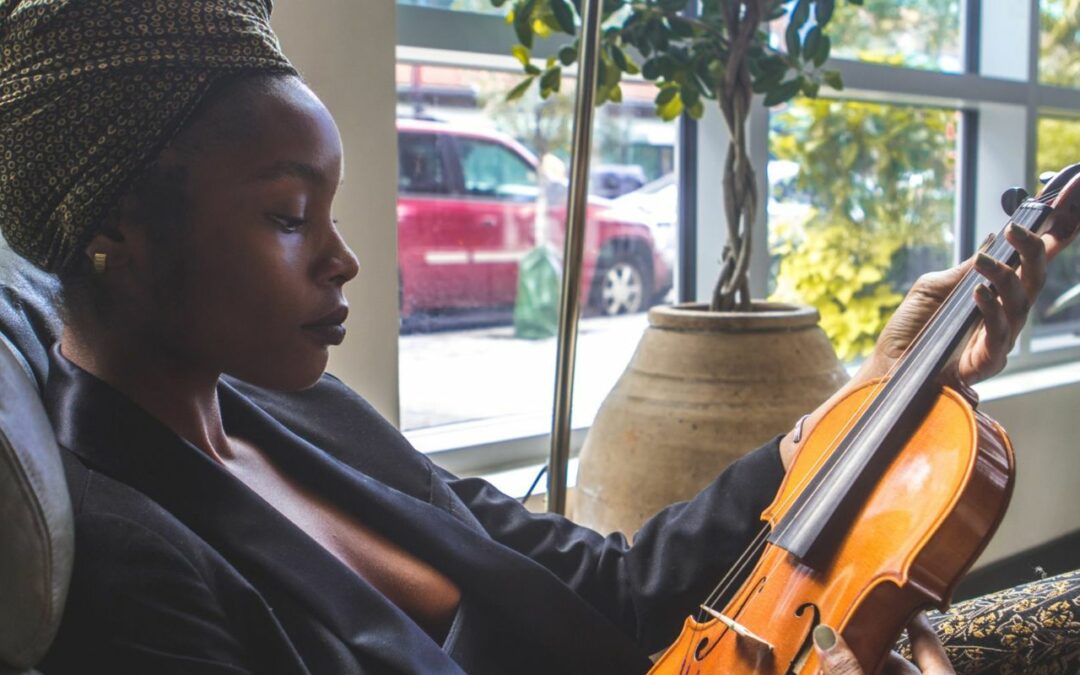Noise exposure is one of the most common causes of hearing loss. Musicians are especially vulnerable to developing noise induced hearing loss as a result of excessive noise absorption. In fact, studies show that musicians can be up to 4 times more likely to experience hearing loss than nonmusicians. Additional studies show that 60% of classical musicians have some degree of hearing loss. Hearing loss is a chronic medical condition that not only impacts hearing but has far reaching effects on all aspects of life. Symptoms often strain communication, relationships, social life, as well as health. If you or a loved one is a musician, it is important to implement measures to protect hearing health.
Noise Induced Hearing Loss
The Hearing Health Foundation estimates that 22 million people are exposed to hazardous noise levels in the workplace. This disproportionately impacts musicians who are consistently exposed to excessive noise levels. One time or constant exposure to loud noise can permanently damage the hair cells in the inner ear. There are thousands of these sensory cells in the cochlea which play an integral role in how sound is processed. These cells convert incoming soundwaves into electrical signals that get carried to the brain. The brain is then able to further process and assign meaning to these signals, allowing us to understand what we hear.
Loud noise can irreparably damage these sensory cells. Excessive noise can desentize them, reducing their capacity to convert soundwaves into electrical signals for the brain. This disrupts hearing and causes the brain to receive less auditory information. Unlike other types of cells we have, hair cells in the inner ear do not regenerate. Humans are actually born with all of the sensory cells in the ear that we’ll ever have. This means that when they experience damage, this damage is permanent as there are also no ways to replenish these cells. The impact of loud noise on hair cells is permanent, causing noise induced hearing loss.
How Loud is Too Loud?
You may be surprised to learn that noise levels don’t have to be blaring high for your hearing health to be impacted. Sound is measured in decibels and noise above 85dB can be hazardous for hearing health. This is the equivalent of busy traffic, a hair dryer, or vacuum cleaner which highlights that we are exposed to everyday sounds that can be impactful on hearing health. Experts suggest that people can be exposed to 85dB of sound for 8 hours a day without harming hearing but exceeding this safety threshold requires significant adjusting.
The Occupational Health and Safety Administration (OHSA) suggests that exposure time is cut in half for every 3dB increase of sound after 85dB Their guidelines for safe listening include:
- 85dB: 8 hours
- 88dB: 4 hours
- 91dB: 2 hours
- 94dB: 30min
Going beyond these safety thresholds can damage hearing. Musicians are regularly exposed to higher levels of noise for prolonged periods of time. Classical music concerts can reach 90dB and rock concerts even louder. So it is especially important for musicians to protect their hearing as much as possible.
Tips to Protect Hearing Health
Noise induced hearing loss is completely preventable. There are several safety measures that can be integrated to protect hearing health. This includes:
- Wearing hearing protection: there are different types of hearing protection including headphones, earbuds, earmuffs etc. which provide a protective barrier that reduces the amount of loud noise that is absorbed. But musicians require specific hearing protection that protects hearing while still providing access to the sound you want to hear. The best option is custom hearing protection made for musicians. This includes custom made earplugs which are made using molds of your ear, ensuring a perfect fit.
- Using in-ear monitors: in-ear monitors allow musicians to hear music directly in their ears as it is playing. In-ear monitors utilize noise cancellation technology to reduce background noise and deliver clear sound, letting musicians hear music clearly and safely.
- Regularly test hearing: having your hearing evaluated regularly is especially important for musicians. Hearing tests identify any changes to hearing health that need to be addressed. This allows musicians to track their hearing health and treat symptoms early which can effectively protect hearing.
Contact us to schedule an appointment for a hearing aid consultation. We look forward to helping you prioritize your hearing health.


